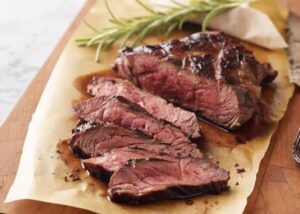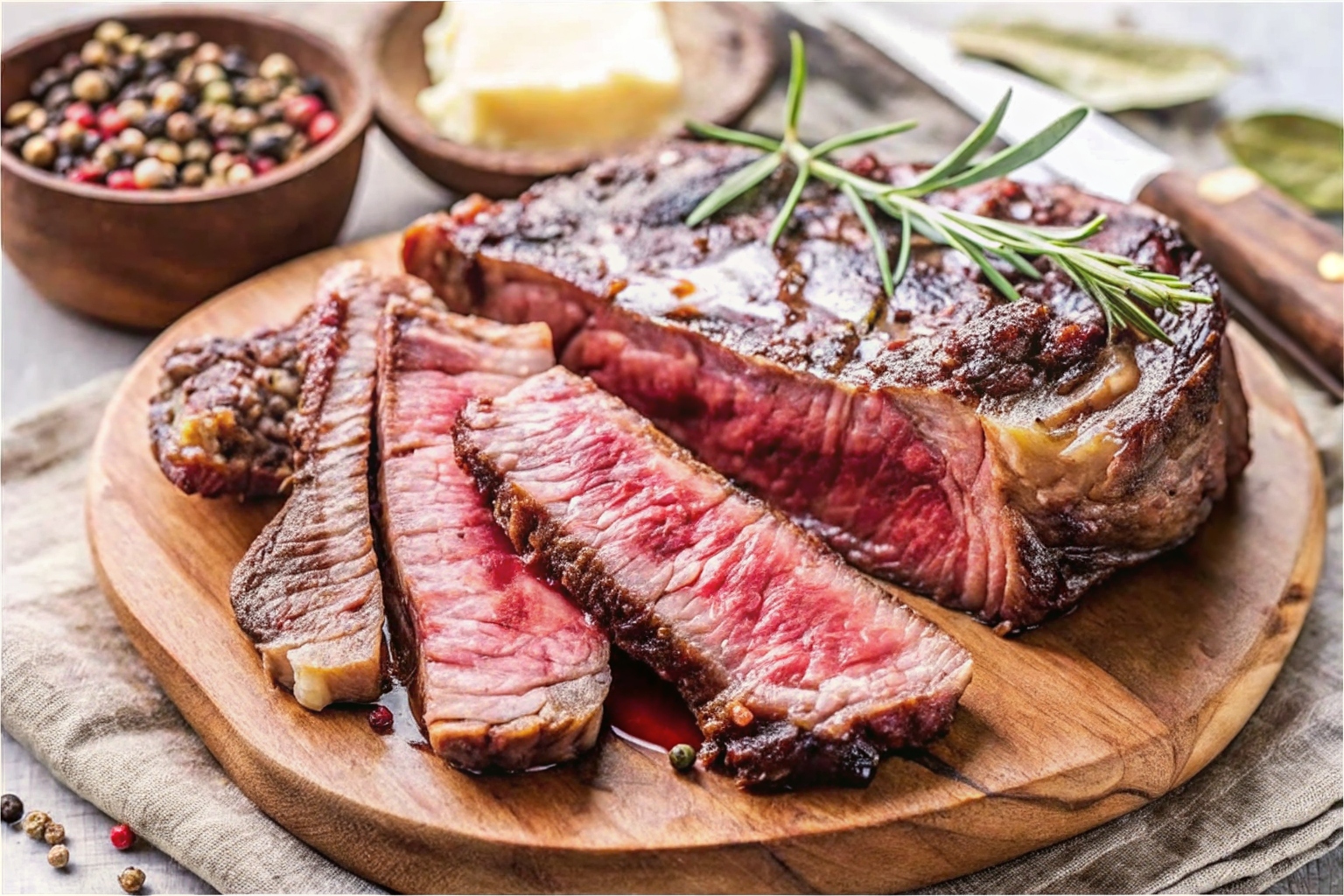ADVERTISEMENT
ADVERTISEMENT
ADVERTISEMENT
Savory Steak Tenderization Recipe: The Ultimate Guide to Perfectly Tender and Juicy Steak
When it comes to cooking the perfect steak, tenderizing is a crucial step that transforms an ordinary cut into a mouthwatering masterpiece. Whether you’re preparing a ribeye, sirloin, or flank steak, understanding how to properly tenderize meat can elevate your culinary game significantly. This comprehensive guide will walk you through a savory steak tenderization recipe that ensures every bite is flavorful, juicy, and melt-in-your-mouth tender.
Why Tenderizing Steak Matters
Tenderizing steak isn’t just for tough cuts; even premium cuts benefit from a little extra care. The process helps break down muscle fibers and connective tissues, allowing flavors to penetrate deeply and giving the steak a buttery texture. It also reduces cooking time and improves the overall eating experience.
Many home chefs overlook this step, but it’s one that professionals swear by. According to Serious Eats, even the best steaks can become dry or chewy without proper preparation. Investing time into tenderizing ensures that your meat lives up to its full potential.
Choosing the Right Cut of Meat
Before diving into the recipe, it’s important to start with a quality cut. Here are some great options for tender, flavorful results:
- Ribeye – Rich in marbling, ideal for pan-searing or grilling
- Sirloin – Leaner, but benefits greatly from tenderizing
- Flank or Skirt Steak – Tougher cuts that become incredibly tender when properly treated
- New York Strip – A good balance between tenderness and beefy flavor
Not sure which cut to choose? MasterClass offers an excellent breakdown of steak cuts based on your cooking method and taste preferences.
ADVERTISEMENT

ADVERTISEMENT
Ingredients You’ll Need
The beauty of this tenderization recipe is its simplicity. You don’t need any fancy tools or obscure ingredients:

- 2 steaks (1-1.5 inches thick)
- 2 tbsp kosher salt or coarse sea salt
- 1 tbsp olive oil
- 1 tsp garlic powder
- 1 tsp onion powder
- 1 tsp freshly ground black pepper
- Optional: 1 tsp dried rosemary or thyme
Step 1: Salt Tenderization
Salt is the cornerstone of this recipe. It not only enhances flavor but also helps tenderize the meat through a process called osmosis.
Here’s how to do it:
- Lay the steak flat on a tray or plate.
- Sprinkle 1 tbsp of kosher salt on each side.
- Let the steak sit at room temperature for 45-60 minutes.
What happens during this time?
- Salt draws moisture out of the steak.
- The moisture dissolves the salt, forming a brine.
- This brine is reabsorbed into the steak, breaking down tough muscle fibers.
Tip: Avoid using iodized table salt, as it can make the steak overly salty.
Step 2: Rinse and Dry
After the steak has rested, it’s crucial to rinse off the excess salt.
- Rinse under cold water for 10-15 seconds.
- Pat the steak dry thoroughly with paper towels.
Why is this important? A dry surface ensures a perfect sear later, locking in juices and creating a flavorful crust.
Step 3: Season the Steak
Once your steak is dry, it’s time to add a savory seasoning blend.
- Rub olive oil on both sides of the steak.
- Mix garlic powder, onion powder, black pepper, and optional herbs.
- Press the seasoning into the meat gently to ensure it adheres.
This simple blend enhances the meat’s natural flavors without overpowering them.
Step 4: Cooking the Perfect Steak
You have several options when it comes to cooking your steak. Regardless of the method, always allow the meat to come to room temperature before cooking.

Pan-Searing Method:
- Preheat a cast-iron skillet until it’s smoking hot.
- Sear steak for 2-3 minutes per side.
- Finish in a preheated oven at 400°F for 5-7 minutes.
Grilling Method:
- Preheat the grill to high heat.
- Cook steak for 3-4 minutes per side.
- Move to indirect heat to finish cooking.
Use a meat thermometer to check doneness:
- Rare: 120-125°F
- Medium-rare: 130-135°F
- Medium: 140-145°F
- Medium-well: 150-155°F
- Well-done: 160°F and up
Pro Tip: Always rest the steak for 5-10 minutes before slicing. This allows the juices to redistribute evenly.
Step 5: Slicing and Serving
How you slice your steak can make a big difference in texture. Always cut against the grain to shorten the muscle fibers and ensure tenderness.
Serve with:
- Roasted vegetables
- Garlic mashed potatoes
- Herb butter or chimichurri sauce
- A bold red wine like Cabernet Sauvignon
Additional Tenderizing Techniques
While salt tenderization is powerful, here are some other methods you can combine or try separately:
- Mechanical tenderizing – Use a meat mallet to break down tough fibers.
- Acidic marinades – Use vinegar, lemon juice, or yogurt to help soften the meat.
- Enzymatic tenderizers – Pineapple or papaya contain natural enzymes like bromelain and papain.
- Sous vide cooking – Low and slow cooking in a water bath ensures even tenderness.
Common Mistakes to Avoid
- Skipping the resting time: Salt needs time to work its magic.
- Over-salting: Measure your salt carefully and don’t use fine salt.
- Not drying the steak: A wet surface prevents proper browning.
- Overcooking: Use a thermometer to get it just right.
Final Thoughts
With this savory steak tenderization recipe, you’re not just cooking dinner—you’re crafting an experience. Tenderizing with salt and seasoning thoughtfully unlocks rich flavors and textures that rival any steakhouse.
Whether you’re serving it for a special occasion or a casual weeknight meal, mastering this method will make steak a staple in your kitchen. Ready to impress? Fire up that pan or grill and enjoy every juicy, flavorful bite.
For more details, visit the full recipe
Thank you for following me on Facebook , Pinterest !
ADVERTISEMENT

